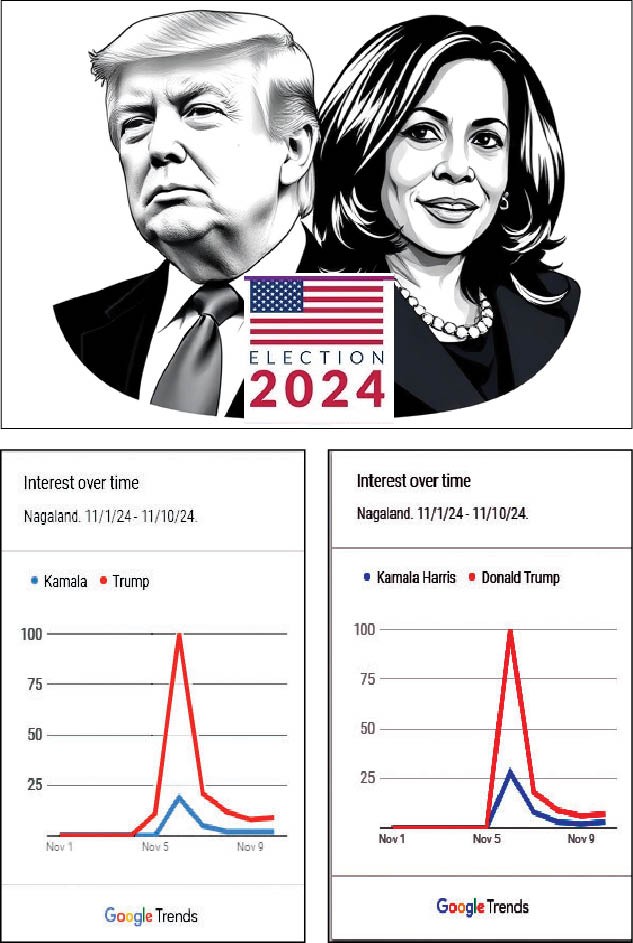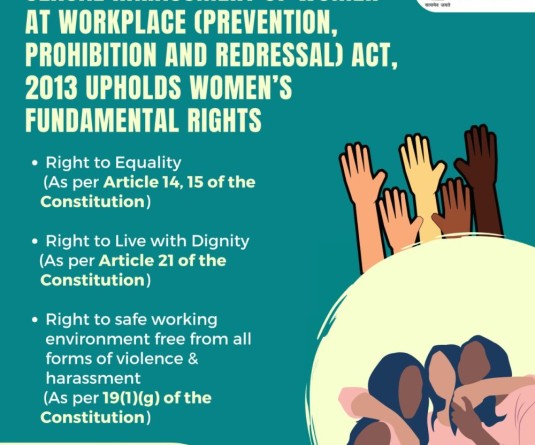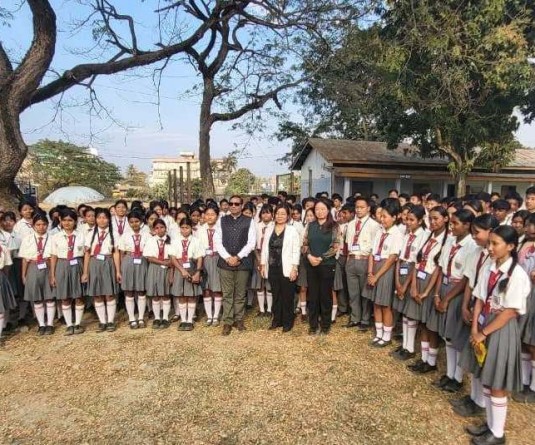Comparative data of Google Trends searches for the terms ‘Trump’ and ‘Harris’ as well as ‘Donald Trump’ and Kamala Harris’ from November 1-10.

Moa Jamir
Dimapur | November 21
As President-elect Donald Trump continues to fill key Cabinet positions and prepare for his second term starting January 20, 2025, a quirky analysis from Google Trends suggests that, in a hypothetical scenario, he would have secured a landslide victory if the US elections were held in Nagaland.
Google Trends data from early November revealed an overwhelming preference for Trump over his rival, Vice President Kamala Harris, across the state, offering an intriguing snapshot of public interest during the election period.
Between November 1 and 10, the search terms ‘Trump’ and ‘Harris’ saw significant spikes, with interest peaking on November 6, the day of the US election.
However, a comparison of the terms indicated that searches for ‘Trump’ were nearly five times more frequent than those for ‘Harris’ on the election day.
The next day, that figure dropped slightly but still showed Trump leading by a margin of nearly four to one.
Similarly, searches for ‘Donald Trump’ were almost four times higher than for ‘Kamala Harris’ on November 6, before dropping to a little over 2:1 by November 7.
Breaking down the data by areas in Nagaland, the trend was even more pronounced.
In 14 ‘cities’ or areas, the search interest for ‘Trump’ was near 100%, with the only exception being Wokha, where ‘Harris’ managed to secure 51% of searches.
Areas like Thizama (36%), Pfutsero (31%), and Mon (24%) also saw some interest in Harris, but the numbers were overwhelmingly in Trump’s favour.
In terms of ‘Donald Trump’ vs. ‘Kamala Harris,’ Trump maintained a 100% search dominance across all areas, except in Dimapur, Pfuchama, Kohima, and Mokokchung, where interest in Harris ranged from 5% to 35%.
As for the related queries, Trump’s supporters were keen to know about his height, age, family, and his connections with high-profile figures like Elon Musk.
On the other hand, those interested in Kamala Harris were curious about her background, including her religion, family, and nationality, with Trump topping those searches as well.
However, since the election, interest in both figures has waned.
By November 21, searches for Trump had dropped significantly, though there were still some queries related to his upcoming presidency.
Searches for Harris, meanwhile, had virtually disappeared, showing no ongoing interest in the outgoing Vice President.
It must be noted that while Google Trends provides interesting insights into public interest and search patterns, these trends do not necessarily correlate with actual voting behavior. The data presented above is based on a hypothetical scenario derived from specific search terms and does not reflect real-world election results.
Further, in both cases, the interest in the neutral term ‘US Elections’ was significantly higher than the searches for both Trump and Harris.






